May 11 to 17, 2015 is Nursing Week
From general to specialized care, nursing is a multifaceted profession in which all aspects are equally important. Nurses who conduct research are very active at the McGill University Health Centre (MUHC), but their work is not always as well known. To demystify this professional field and to recognize our nurses who are passionate about improving patient care, we present here six of them.
Sonia Castiglione
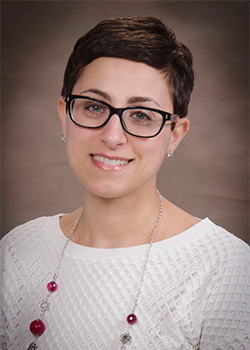
Sonia Castiglione is an Evidence Informed Decision Making Advisor at the McGill University Health Centre (MUHC). “In this role I support nurses and interdisciplinary groups with using the best available research evidence in their practice in order to deliver the best care possible for our patients.”
This nursing position, which is unique at the MUHC and in Canada, contributes to an evidence based culture—a culture where teams are always questioning what they are doing and looking at the research evidence that points to the best way to practice health care.
“Typically, research takes 15 to 20 years to influence practice,” says Castiglione. “This is too long of a lag; so my kind of role helps to shorten that gap and to accelerate that process. My role also helps to use research more effectively and efficiently so research can be applied into practice in a relatively short time period versus the time it typically takes now.”
With the move of adult and pediatric services to the Glen site of the MUHC, Castiglione thinks it will give adult and pediatric teams a better opportunity to learn from each other— what best practice is in health care from child to adult. “I think working collaboratively will promote that culture of always trying to improve practice across the age spectrum.”
![]()
Joanne Power, Clinical Nurse Specialist
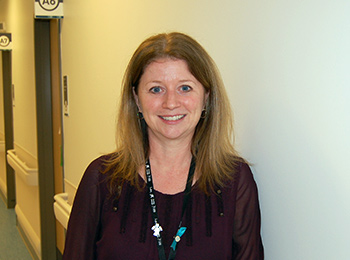
Since 2009, Joanne Power has worked as a Clinical Nurse Specialist (CNS) in Gynecologic Oncology at the McGill University Health Centre (MUHC), working with patients and their families who are diagnosed with a gynecologic cancer.
“What I like about the CNS role is there are many parts to the job, such as involvement with patients and families, in education with staff as well as with patients and families and in development of educational resources,” says Power. “Of course, there is also the administrative aspect like sitting on different committees representing nursing or representing the MUHC and then there is research.”
Power’s first involvement with research was when she was doing her Masters project, which focussed on improving nurse and patient communication related to symptom assessment and management for women undergoing chemotherapy for ovarian cancer. As a CNS she has also been involved in supervising nursing Masters students from McGill University for their research studies.
One study with the students included looking at the informational needs of women receiving chemotherapy for ovarian and endometrial cancer. “We were giving them a lot of info but we weren’t sure if what we were giving them was meeting their needs. From this we learned that there are variations in the amount of info they want and in the timing of delivery of information,” says Power. “As a result, we worked with the MUHC Patient Education Office to develop patient education websites for these patients and their families.”
After developing the website it was important to evaluate if the site met the needs of patients so the team decided to do a study to research the acceptability and usability of this online image-based, patient education site for newly diagnosed ovarian cancer patients. The study ended up receiving funding from the Canadian Association of Nurses in Oncology and from the MUHC Nursing Research Department. “We finished our data collection in February so now we are getting into the fun part—the analysis,” says Power.
“It is great to supervise Masters students; I think it is a win-win for both because they get the opportunity to do the research and have supervision for doing it,” says Power. “We also have the advantage of implementing the results into practice. At the end of the day, it’s important to foster a culture of inquiry—to understand not just how to do something but why—as our patients and families benefit enormously.”
![]()
Anita Mehta
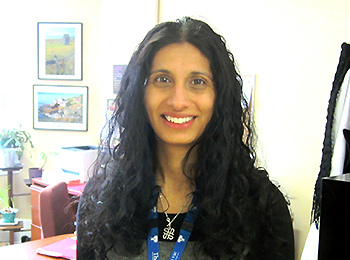
Anita Mehta is a Clinical Nurse Specialist, the co-director of the Psychosocial Oncology Program at the MUHC and an assistant professor at the McGill University Ingram School of Nursing. While the main part of her job is to triage the consults made to the program and support patients and family members suffering from distress, anxiety and sometimes depression related to a cancer diagnosis, she also conducts research.
Mehta and her team recently completed a research project that consisted in the creation of a screening tool adapted to cancer patients' family members – Mehta’s area of expertise -, to better assess their distress. ‘’It’s the clinical practice that gave us the idea,’’ she explains, since the screening tool they were using for them was made for cancer patients and therefore, not fully appropriate.
‘’Our job is not easy, but it’s very rewarding to feel that you can actually make a difference in a patient’s life," she says. Talking about turning passion into practice, she adds: ‘’I find when you have people who work together who are equally passionate, they tend to look out for each other, and with that anything becomes possible."
![]()
Dr. Virginia Lee

Nurse Scientist and Interim Associate Director of Nursing Research at the MUHC, Dr. Virginia Lee is involved in different research studies with the same main goal: to improve quality of life for people undergoing all stages of cancer treatment. One of her current projects involves working with oncology nurses and the interdisciplinary cancer team at the Montreal General Hospital to improve care for newly diagnosed patients.
“The beginning of cancer treatment is extremely stressful for patients. Besides the emotional and physical impact, they have to learn how to navigate the health system. Part of our research involves using surveys and interviews with patients as well as the healthcare providers to understand how to better prepare and support patients,” says Dr. Lee, who is also a research scholar with the Fonds de recherche du Québec - Santé (FRQS). “As we learn from them, we develop interventions that are tested at the bedside, evaluated and, if successful, can be rolled out to other patients.”
Dr. Lee is also assistant professor at the McGill Ingram School of Nursing, where she passes on to her students her passion for research. “We want nurses to be inquisitive about what they do and why they do it, ” she says. “A systematic, rigorous evaluation of what we do is essential to keep providing the best care to patients.”
![]()
Anne Choquette
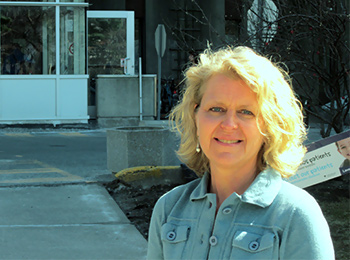
Anne Choquette is a Clinical Nurse Specialist in the Hematology-Oncology Department at the Montreal Children's Hospital. Thanks to the MUHC's Eureka! Fellowship in Nursing Research, Choquette was able to spend a year studying teens who return to school after cancer treatment.
“Over the year, I interviewed 11 adolescents with cancer as well as their parents. My mentors, Janet Rennick and Virginia Lee, both of whom are Nurse Scientists at the MUHC, helped me analyze the results and create recommendations, which were presented to the team and may soon be published in a journal,” she explains.
“From the start, the team and my supervisors supported me. Doctors approached families to recruit participants and agreed to set aside time for interviews during the teens’ hospital appointments. This experience was extremely rewarding.”
Choquette also says that working with young patients and being part of a devoted team has fuelled her passion and motivation. Right now, she is focusing on the move to the Glen site but hopes to carry out the second part of the study sometime in the immediate to near future.
![]()
Janet Rennick
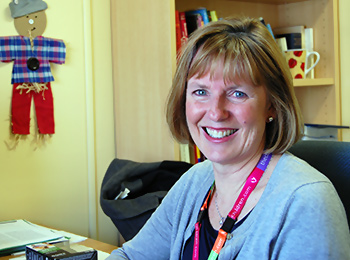
Nurse Scientist Janet Rennick was one of the first in her field to study the psychological impact of Pediatric Intensive Care Unit (PICU) hospitalization in children. Her research stems from her work as a staff nurse at The Hospital for Sick Children (SickKids), in Toronto and a Clinical Nurse Specialist at the Montreal Children’s Hospital (MCH).
“I learned that the child’s stay in the PICU is often just the beginning of a long, complex recovery for kids, and that parents are often very concerned about how that experience affects their child,” she says.
Dr. Rennick is principal investigator of a five-year study funded by the Canadian Institutes of Health Research (CIHR) that aims to identify vulnerable children and to develop interventions to promote their psychological well-being during and after critical illness and hospitalization. She is also a research consultant within the MCH Department of Nursing and an associate professor in the Ingram School of Nursing and Department of Pediatrics, McGill University.
“We’ve just finished a pilot study that engaged parents in reading to their children and choosing music for them to listen to in the PICU, and the response from parents and nurses was enthusiastic,” says Dr. Rennick with a smile. “My work is very rewarding.”
![]()
